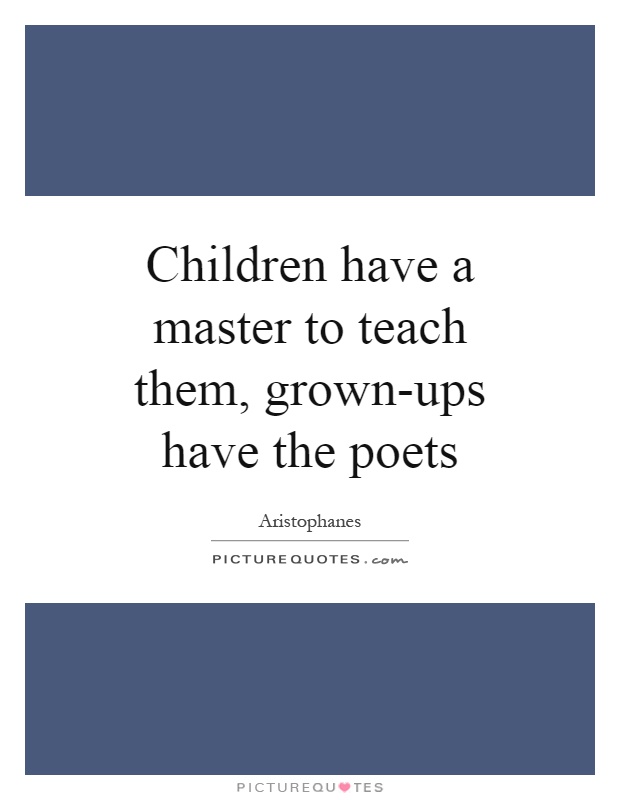Children have a master to teach them, grown-ups have the poets

Children have a master to teach them, grown-ups have the poets
In the world of ancient Greek literature, Aristophanes stands out as one of the most renowned comedic playwrights of his time. Known for his sharp wit, clever wordplay, and satirical commentary on the society and politics of his era, Aristophanes was a master of using humor to shed light on the absurdities of human behavior. His plays often featured fantastical scenarios and exaggerated characters, making them both entertaining and thought-provoking for his audiences.One of the recurring themes in Aristophanes' work is the idea that children have a master to teach them, while grown-ups have the poets. This concept speaks to the idea that children are guided and educated by their elders, while adults must rely on the wisdom and insight of poets and other artists to help them navigate the complexities of life. In Aristophanes' plays, this dichotomy is often portrayed through the interactions between younger and older characters, highlighting the differences in their perspectives and experiences.
Aristophanes' plays are filled with colorful characters who embody various aspects of human nature, from the foolish and bumbling to the wise and insightful. Through his comedic portrayals of these characters, Aristophanes invites his audience to reflect on their own behavior and beliefs, challenging them to consider the ways in which they navigate the world around them. By using humor and satire to address serious themes, Aristophanes is able to engage his audience in a way that is both entertaining and thought-provoking.












 Friendship Quotes
Friendship Quotes Love Quotes
Love Quotes Life Quotes
Life Quotes Funny Quotes
Funny Quotes Motivational Quotes
Motivational Quotes Inspirational Quotes
Inspirational Quotes